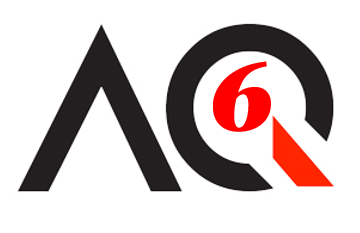
Presenting AQ4 at Boot Camp in 2022
Maybe you read the title of today’s blog post, wondering what the heck it means.
But when you think about it, the people we hear most on our radio stations – the air personalities – are rarely heard as a group. Or as people.
Most of the time, talent walks into their sound-proofed studios and work by themselves for hours at a time. Many others pre-record their shows, which ends up being even more isolating.
Fewer staff meetings…and fewer staff – generally translates to fewer opportunities to meet, share stories, and just hang out. Typically, the most interesting people in radio historically are often heard from less than ever before.
most interesting people in radio historically are often heard from less than ever before.
At times, their frustration and anxiety are palpable. While there’s much repressed anger at the way things are going in radio, it might be even more pronounced at the talent level. At a time when the industry has buzzed about replacing live DJs with robots, there are fewer on-air people working in radio than at any time in the past 50 years.
And yet, when you ask the audience why they still enjoy listening to AM/FM radio, personalities edge out music for the sixth straight year. While some believe “more music/less talk” is the winning formula, it is not sustainable, unless you’re Spotify or Apple Music. And based on the “profitability” of digital streaming platforms, I wouldn’t take this one to the bank.
The fact is, more people thrive on storytelling, companionship, community connection, and even hanging out with a favorite personality.

Thanks to this being the sixth year we’ve been conducting these AQ surveys in collaboration with Boot Camp (we started in 2018 and skipped 2020 due to the pandemic), we have been able to tell the story of what its like to be talent on commercial radio during what has been the most arduous time in the industry’s history, except for perhaps the coming of television during the Eisenhower administration. Thanks to these studies, we have a pre- and post-pandemic look at life in the air studio. And it’s quite the story.
 AQ6 went into the field yesterday, and we’re anxious to see the results as air personalities doing morning drive at the biggest companies in the largest of metros fill out the same questionnaire as the PD-afternoon drive talent-promotion director-digital manager at a mom & pop in a small market in the hinterlands. (And BTW, the latter may also have a small “list” of clients to service.) But once they get behind the mic, their jobs are essentially the same – to entertain and inform in good times and bad for an audience they can’t see, but can most definitely feel.
AQ6 went into the field yesterday, and we’re anxious to see the results as air personalities doing morning drive at the biggest companies in the largest of metros fill out the same questionnaire as the PD-afternoon drive talent-promotion director-digital manager at a mom & pop in a small market in the hinterlands. (And BTW, the latter may also have a small “list” of clients to service.) But once they get behind the mic, their jobs are essentially the same – to entertain and inform in good times and bad for an audience they can’t see, but can most definitely feel.
Every year, we work to craft new questions to reflect the changing environment for radio, especially from the POV of those on the air. And of course, we continue to track our core DJKPIs – the key performance indicators for air talent. This slide from last year’s AQ5 is a case in point reflecting the level of high anxiety among those on the air, especially younger generations and those in PPM markets. (Can you blame them?)

In this new study, AI gets its own series of questions, as you might expect. Last year, our talent pool that was well north of 400 respondents strong told us this new technology was the least important from a list of 20 skill set items. And they also rated their proficiency at artificial intelligence the lowest of the data set, below social media and their computer aptitude. I expect that may change when the responses from this year’s study are toted up. Whether talent likes it or not, AI is here to stay.
But to what end? It is lamentable many radio execs have spent more time contemplating the state of the business with robot DJs than they have trying to figure out how to do a better job with their live talent. More resources should be devoted to hiring, training, nurturing, and coaching their most unique resource: human personalities. As we see in AQ every year, many are struggling to feel good about the business, their jobs, and their chosen careers in radio as the world moves to bots and algorithms.

Ultimately, any radio company can get skillful at manipulating Artificial Intelligence, but it is debatable whether they’ll eke out an advantage over their competition in any given market, or with the biggest and best media companies on the planet. Everyone’s using essentially the same platforms, the same prompts, the same technology with AI. So, “advantage: no one.”
But growing and developing a great morning show or talk show host for a home market will pay dividends in branding and revenue generation for years to come. They are your brand ambassadors – the human conduit between audience, advertisers, and the community.
 That’s really the subtle key to our AQ studies. On the surface, I tell talent this is a survey about them and for them. But the reality is that the survey is a cheat sheet for management and ownership. It’s their version of the Cliff’s Notes that provide summarized insights into the hearts and minds of their on-air talent. The more you understand their mindsets – how they perceive their roles, their fears, their hopes, and their POVs – the better you can collaborate and help them grow.
That’s really the subtle key to our AQ studies. On the surface, I tell talent this is a survey about them and for them. But the reality is that the survey is a cheat sheet for management and ownership. It’s their version of the Cliff’s Notes that provide summarized insights into the hearts and minds of their on-air talent. The more you understand their mindsets – how they perceive their roles, their fears, their hopes, and their POVs – the better you can collaborate and help them grow.
That’s a huge part of what I personally have gleaned from the dozens of Morning Show Boot Camps I’ve attended over the years. It’s not just the sessions or presentations like our AQ studies. It’s the networking and social time you get to spend with the most interesting people in the radio industry.
sessions or presentations like our AQ studies. It’s the networking and social time you get to spend with the most interesting people in the radio industry.
In recent years, Hubbard has put on their own “pre-game show” (pictured) the night before Boot Camp – a must-attend gathering of talent and the company’s fine management team. It’s all about spending time, trading stories, tossing back a beverage or two, and hanging out. (And don’t ask me for an invite – the event is “sold out” so reach out to Greg Strassell.)
So, if you’re on the air (or you were RIF’ed since COVID, head here to take this survey. And please share the survey with your airstaff and anyone else in commercial radio on both music and spoken word stations.
If you can join us at Boot Camp in San Diego next month, see you there. If not, stay tuned for our free all-industry AQ6 webinar we’ll present before Labor Day.
Talentmasters Don Anthony – the father of the Morning Show Boot Camp – has once again given me the opening slot at this year’s event, continuing our tradition. I get to deliver the top-line results to my most rapt, dialed-in, and appreciative audience of the year. The air talent who attend Boot Camp and make it a point to attend my session aren’t on their phones or looking out the window. They are laser-focused on the data, churning away on what the charts and graphs mean to them, their careers, and their craft. It’s something to see.

In fact, I hope you make it a point to see it. Boot Camp is the most unique get-together of radio people I’ve ever seen. It’s also more fun, electric, and congenial. If you’ve ever wondered whether talent takes their jobs seriously, you can stop wondering when you get to Boot Camp. Most attendees pay their own way to be there, quite a statement about their commitment to their careers and to themselves.
Let’s learn from each other at a time in our industry’s trajectory when we need insights and understanding more than ever.
Info/registration for MSBC36 in San Diego here.
Take the AQ6 survey here.
Originally published by Jacobs Media








